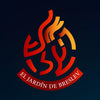
"We must be like the little ones"
It is an ancient custom to begin children's Torah education with the Sefer Vaykra (Book of Leviticus). This is because children are pure, and Vaykra speaks of sacrifices offered in a state of ritual purity.
"Let the pure come and study the pure" (Vaykra Rabbah 7:3)
Also in the Torah Scroll, the letter Aleph (א) of the word Vaykra (which in this case sounds like an "A") is translated as: "He Called" It is written smaller than the other letters, this small letter is known as 'Alef zeirá' (small Alef)
In Aramaic the word Alef means "to teach" and zeirá also connotes "young", so Alef zeirá can be read as: "teach the little children"
Which tells us that we should begin teaching Torah to our children from the Book of Leviticus "Vaykrá"
This Book of the Torah is called Vaykra because it begins as follows:
"He called to Moses from the Tent of Meeting, saying..." (Vaykra-Leviticus 1:1)
Since we know this Parasha speaks of sacrifices, many may wonder, what can we understand of "sacrifices" now if we no longer have the Tabernacle, the Great Temple, or the entire service or ritual of the Cohanim? (Priestly Service)
Indeed! This Parasha teaches us much today, since all holocausts and sacrifices have been transformed by "Prayer."
As the Prophet said:
"...Their burnt offerings and their sacrifices will be accepted on My altar, for My house will be called a house of prayer for all peoples." (Isaiah 56:7)
How important it is to learn Emuna, strength, and order in our prayers!
There is still much to learn and to continue improving in our way of approaching the Eternal Blessed Be He!
The Breslev Garden recommends:
